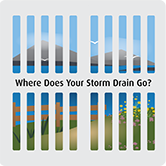 The food services sector provides an important service to local residents, businesses and visitors and is an economic driver in the region.
The food services sector provides an important service to local residents, businesses and visitors and is an economic driver in the region.
A food services facility includes operations where food is prepared or made ready for eating and served to the public, including a restaurant, health or residential care facility, delicatessen, grocery store, bakery, butcher shop, fast-food outlet, cafeteria, bar or similar place.
As part of the normal operation of a food services facility, liquid and solid wastes are generated, and how we manage that waste can have a significant impact on our natural resources, public and private infrastructure, and human and environmental health.